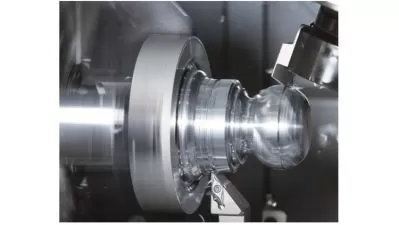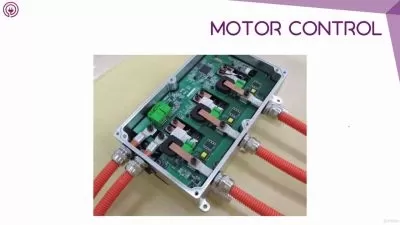Python programming for Automotive
Thaminmun Ansari S
5:22:42
Description
Course on python programming for Automotive Application
What You'll Learn?
- Python programming for Automotive Application
- Virtual Vehicle network design
- Automotive Test Automation using python
- Rapid Automotive Software prototype development
Who is this for?
What You Need to Know?
More details
DescriptionPython has become a more adaptable programming language in recent years, with applications in a wide range of fields, including automotive software development. Python's readable nature and ease of use make it ideal for rapid prototyping and development. This is important since the automobile business moves quickly and the need for quick iterations to stay competitive is paramount. NumPy, SciPy, and TensorFlow are just a few of the many libraries and frameworks that Python has to offer. These are helpful for jobs like artificial intelligence, machine learning, and data analysis. These resources can be used to create sophisticated driver assistance. OpenCV and scikit-learn, two of Python's many libraries, are incredibly helpful for designing and testing algorithms that are essential to ADAS features. Python speeds up the creation of intelligent systems, from object identification to lane departure alerts. Python's wide ecosystem and versatility are driving its growing importance in automotive development. Python is a strong suit for applications involving high-level control, data analysis, and machine learning, yet it might not be appropriate for every area of automotive software. this course aim to cover every aspect of using python for automotive applications from the basics like creating virtual vehicle networks, network traffic analysis, ECU test automations etc.
Who this course is for:
- Automotive Software programmer
- Automotive System Testing Engineer
- Automotive Test Application developer
- Researcher
Python has become a more adaptable programming language in recent years, with applications in a wide range of fields, including automotive software development. Python's readable nature and ease of use make it ideal for rapid prototyping and development. This is important since the automobile business moves quickly and the need for quick iterations to stay competitive is paramount. NumPy, SciPy, and TensorFlow are just a few of the many libraries and frameworks that Python has to offer. These are helpful for jobs like artificial intelligence, machine learning, and data analysis. These resources can be used to create sophisticated driver assistance. OpenCV and scikit-learn, two of Python's many libraries, are incredibly helpful for designing and testing algorithms that are essential to ADAS features. Python speeds up the creation of intelligent systems, from object identification to lane departure alerts. Python's wide ecosystem and versatility are driving its growing importance in automotive development. Python is a strong suit for applications involving high-level control, data analysis, and machine learning, yet it might not be appropriate for every area of automotive software. this course aim to cover every aspect of using python for automotive applications from the basics like creating virtual vehicle networks, network traffic analysis, ECU test automations etc.
Who this course is for:
- Automotive Software programmer
- Automotive System Testing Engineer
- Automotive Test Application developer
- Researcher
User Reviews
Rating
Thaminmun Ansari S
Instructor's Courses
Udemy
View courses Udemy- language english
- Training sessions 11
- duration 5:22:42
- Release Date 2025/01/13









![Automotive - Over The Air Update [ OTA ]](https://traininghub.ir/image/course_pic/10560-x225.webp)